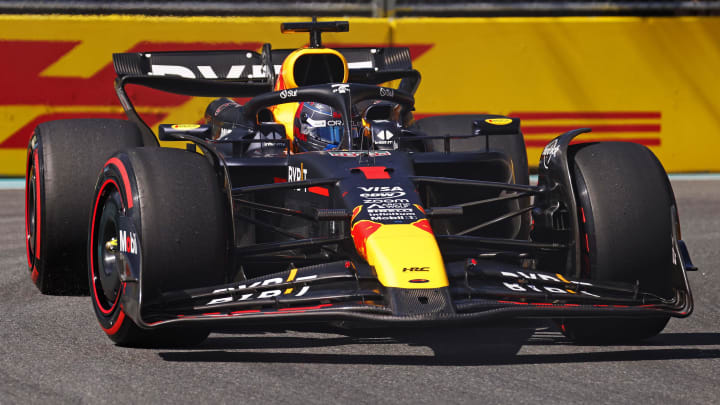F1 CEO Teases Huge Change to Regulations as Teams Worry for 2026

Stefano Domenicali, CEO of Formula 1, has hinted at significant upcoming changes to the sport's regulations as we approach 2026. With the current regulations set to last until 2025, Domenicali's insights suggest a shift towards stabilizing the rules for longer periods to sustain the tight competition witnessed in this brilliant season so far.
Under the current regulatory cycle which began in 2022, Formula 1 moved to ground-effect aerodynamics, a move that dramatically increased the competitiveness among teams... for about the first half of a season. Since then, Red Bull has run away with the titles, showcasing record-breaking dominance in 2023 with Max Verstappen winning both championships under the current regulations.
This season, however, has been a very different story. It started with Max's expected dominance, but quickly turned into an interesting season as other teams - McLaren, Mercedes, Ferrari - now vying over race wins. This season alone has showcased the efficacy of these regulations, with seven different winners across 14 races from four different teams.
"I’m very pleased to say what I said at the beginning of the year is exactly what is happening, when everyone was believing that I was saying that for political reasons," Domenicali said.
Looking ahead to 2026, the fear among teams and industry insiders is that the proposed changes — notably in power units, car design, and aerodynamics — might disrupt this newly achieved competitive balance. However, Domenicali reassures that the thrilling race action will continue robustly through 2025.
"This will for sure continue until the end of 2025. This element of sporting action, and sporting drama, is definitely there," he confirmed.
Domenicali's approach to future regulation cycles includes potentially extending the 2026 regulatory period beyond the typical four or five years.
“This is a point of: is really now the time to do in 2030 another step change?”
This proposal stems from the desire to extend the current era of competitive racing. However, with the introduction of new technologies on the horizon, the timing of any further regulatory adaptations remains uncertain. "We are not in a position to answer today, because we need to wait and see how this new technology will come in and how this will be developed," Domenicali stated.
The justification for historically altering F1 regulations has been twofold: advancing technological innovation and preventing periods of dominance by specific teams.
"The need for change normally is put on the table for two reasons. One is because we are the pinnacle of motorsport, and we are endorsing the top level of technology. The second in the past was that, because it was pretty clear: the objective was stopping a dominance period of cars," explained the Italian. However, with the success of the budget cap and aerodynamics restrictions, the latter reason no longer holds as much weight.
"But now with the new elements of regulation, budget cap and aerodynamics restriction, I think that this point is not anymore on the table of discussion," he added.
As discussions unfold about future regulatory changes, the focus will likely shift towards technological challenges rather than cyclical regulation updates.
"So the real thing is technological challenge in the future. Is it relevant that the change will be in such a short time cycle of five years?”
The overarching goal remains clear: to maintain great racing and competitiveness that fans cherish, while strategically integrating emerging technologies. "That will be the point of discussion for the future,” Domenicali noted, setting the stage for a critical evaluation of the sport's regulatory direction as 2026 approaches.
